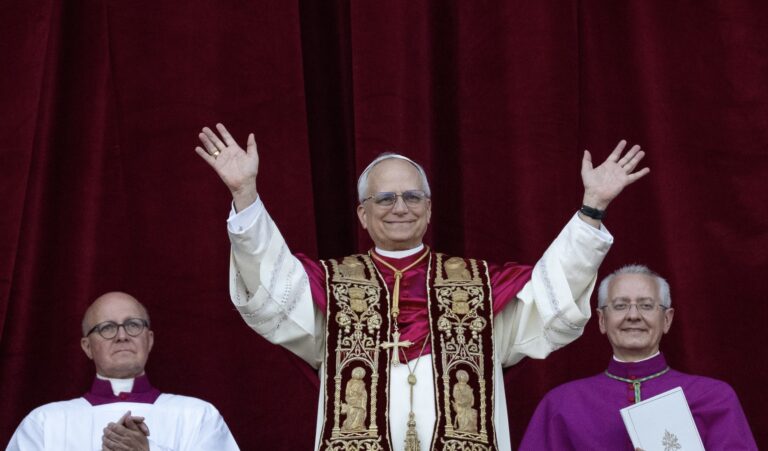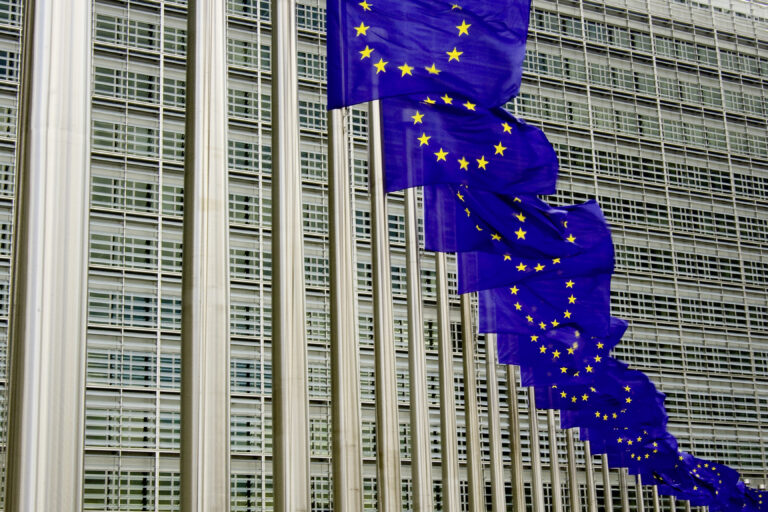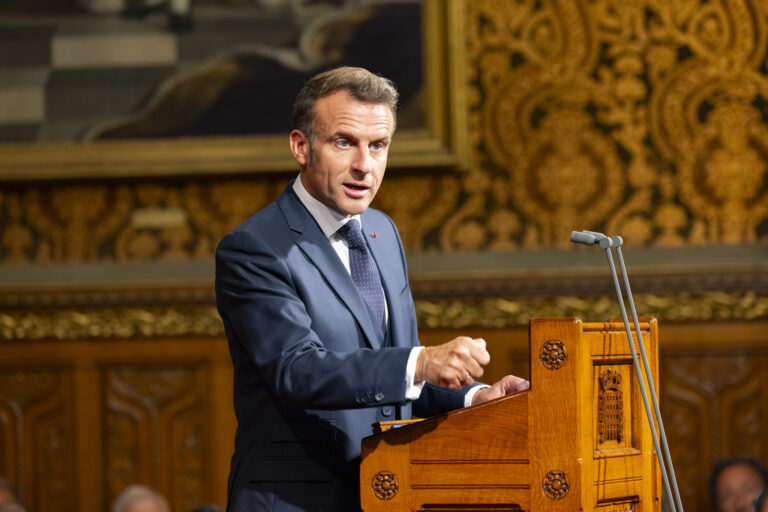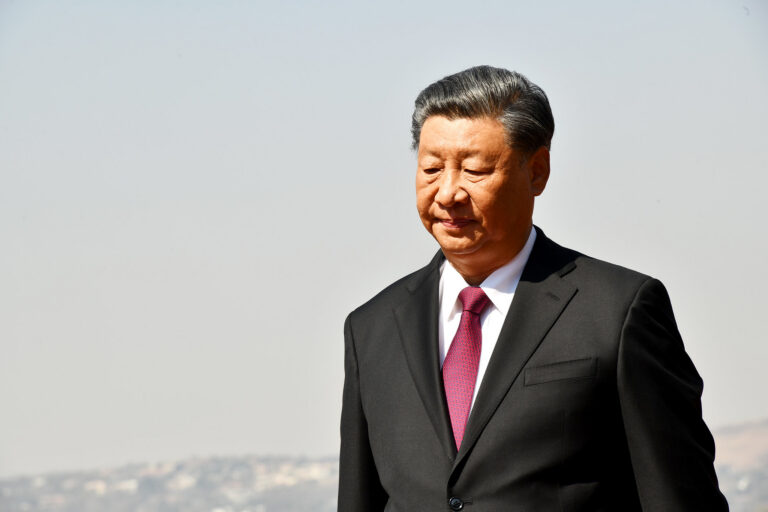Last month, Pope Francis told a reporter that, when choosing to vote between Donald Trump and Kamala Harris, “One must choose the lesser of two evils. Who is the lesser of two evils, that lady or that gentleman, I do not know.”
The question addressed the candidates’ position on two issues: abortion and immigration. Let’s look at them.
On abortion, the Catholic Catechism is clear: “Since the first century the Church has affirmed the moral evil of every procured abortion.” (CCC 2271).
On that issue, the policies advocated by Kamala Harris differ sharply from those advocated by Donald Trump.
Domestically, Harris would allow no exceptions, no “carve-outs,” on her plans to make abortion legal nationwide until birth. Catholic hospitals, doctors, and employers would be thrown into the same legal limbo that arose after Obama’s “HHS Contraception Mandate.” Lawsuits dragged on for years and cost religious orders, employers, and institutions hundreds of millions of dollars – all simply to defend their religious rights under the First Amendment.
On foreign policy, Harris would continue Joe Biden’s efforts to expand U.S. support for abortion and abortion funding through diplomacy, foreign assistance, and international organizations like the World Health Organization (WHO), all of which are funded by billions of taxpayer dollars.
So much for Harris and abortion. What about Trump?
Domestically, he defends the Tenth Amendment to the Constitution, as guaranteed by the Supreme Court’s decision in Dobbs v. Jackson Women’s Health Organization. That ruling returns the abortion issue to the states and to the people, restoring the right to life to millions of unborn children.
Internationally, in 2017 President Trump expanded Ronald Reagan’s Mexico City Policy to forbid international federal funding of abortion; in 2021, the Biden-Harris administration reversed that policy, and Trump would restore it once more.
So much for abortion. What about immigration?
The Magisterial And The Prudential
Catholic teaching offers some helpful distinctions. Magisterial truths are those that all Catholics must believe. The Trinity. The True Presence of Christ in the Eucharist. The Ten Commandments.
On abortion, that authoritative teaching is clear: Abortion, the murder of the most innocent, violates the Fourth Commandment. Period.
What about immigration?
Immigration is among those issues which the Church recognizes as “prudential” – questions on which good Catholics can disagree when it comes to specific application of the principles of justice and charity. On issues like global warming, taxes, and spending, the faithful can have a wide variety of prudential views.
The same is true for immigration, and the Catholic Catechism makes that clear.
CCC 2241 devotes two passages to immigration.
The first describes the obligations of nations:
“The more prosperous nations are obliged, to the extent they are able, to welcome the foreigner in search of the security and the means of livelihood which he cannot find in his country of origin. Public authorities should see to it that the natural right is respected that places a guest under the protection of those who receive him.”
The second passage describes the rights of nations, as well as the obligations of immigrants:
“Political authorities, for the sake of the common good for which they are responsible, may make the exercise of the right to immigrate subject to various juridical conditions, especially with regard to the immigrants’ duties toward their country of adoption. Immigrants are obliged to respect with gratitude the material and spiritual heritage of the country that receives them, to obey its laws and to assist in carrying civic burdens.”
We recall that abortion is murder, period. But on immigration, the Catechism allows a great deal of leeway to nations in determining “the extent to which they are able” to admit and govern aliens, a process which is articulated specifically in a nation’s immigration laws.
And good Catholics can disagree on the details of those laws. We can even disagree with the pope.
In 1982, Father (later, Cardinal) Avery Dulles, S.J., challenged our bishops to stick to their consecrated task – evangelization. He bluntly told our shepherds to leave the political particulars to the laity, as the Second Vatican Council teaches. (Lumen Gentium, 30-37)
“The bishops and clergy who write and issue the statements lack sufficient expertise to speak with authority about many of the questions addressed,” Father Dulles observes. “While sometimes disclaiming a special competence they nevertheless advocate positions that presuppose such competence.”
“By issuing policy statements on matters that lie beyond their specific competence,” he continued, “and that pertain rather to experts in secular disciplines, the bishops diminish their own credibility in speaking about matters with which they are specially charged as spiritual leaders of the church,” he said.
Does that go for the Bishop of Rome as well?
Consider:
Those laws vary from country to country. For instance, the “Vatican City Tours” website points out how the Holy City interprets the Catechism’s teaching on immigration in CCC 2241:
“Vatican City is undoubtedly one of the most exclusive locations in the world to live in, and there is a good reason for that,” the Vatican website says.
Which is to say, the Vatican doesn’t “welcome” just any prospective immigrant. I experienced this personally twelve years ago, on the eve of the celebration of the Mass of Beatification for Saint Pope John Paul II.
Because we had an official pass, my wife and I and an Austrian friend wandered around an empty Saint Peter’s Square at midnight, while police held back literally hundreds of thousands of pilgrims who were waiting behind barricades in every direction to be allowed to enter the square when it opened at 4:00 a.m. for the beatification ceremony.
The Vatican City State’s rules are unusually strict, to be sure; after all, Vatican City occupies only 121 acres, so “the extent to which they are able” to welcome immigrants is severely limited, and the Holy City’s “political authorities” have thus made some pretty strict rules on the subject.
And the Catechism recognizes those same rights in the case of other nations.
Moreover, while good Catholics must acknowledge the intrinsic evil of abortion, we can differ on the specific “extent to which we are able” to welcome immigrants, as reflected in the immigration laws enforced by our own “political authorities.”
How The Candidates Differ
So let’s consider the prospective enforcement of the rule of law by an administration of Kamala Harris as contrasted with that of Donald Trump.
“I can’t decide; I’m not American and won’t go to vote there,” the Holy Father says, and he is right.
So on immigration, Trump and Harris disagree profoundly.
Four years ago, Joe Biden put Kamala at the head of the administration’s immigration policies. Since then, she has overseen the virtual suspension of immigration law and allowed untold millions of illegal immigrants into the country. She has promised to grant them amnesty, putting them on the track to become voters. She is quite confident that a Harris-Walz administration can successfully deal with any economic, political, and cultural challenges that might arise as a consequence.
Donald Trump opposes the Biden-Harris immigration policy on every particular.
So: Trump or Harris – how do we choose?
On abortion, good Catholics have no choice. But on immigration?
Of course, Catholics can in good faith agree with the policies already established by the Biden-Harris administration. Indeed, most of our Catholic bishops do. But that view is not Magisterial – it’s prudential.
The faithful must respect the bishops’ right to have that opinion, and the bishops must likewise respect the faithful’s freedom to either agree or disagree with them.
So bottom line?
Since the Church teaches that abortion is an objective evil, all Catholics in good conscience must condemn it.
On immigration, Church teaching, as briefly described above, gives us certain principles that allow us to reach a variety of opinions, all of them permissible to Catholics acting in good faith.
In our attempt to choose between what Pope Francis calls “the lesser of two evils,” these are the factors that the faithful should consider when making our decision.







